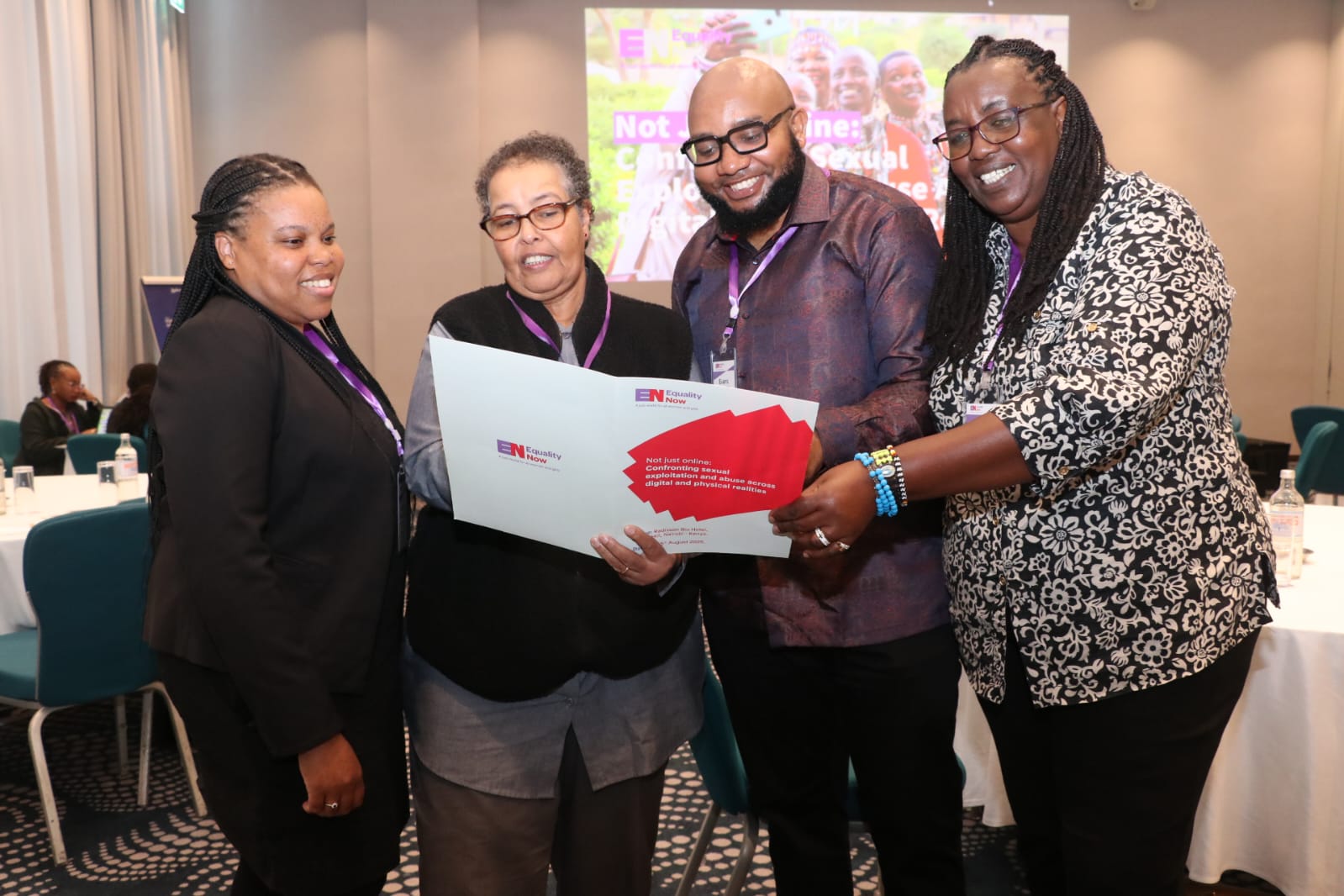 Equality Now digital rights advisor Amanda Manyame, Equality Now Africa director Faiza Mohammed, End sexual exploitation Africa programme lead Evans Munga and Life Bloom Kenya CEO and founder Katherine Wanjohi during a high-level multi-stakeholder forum on confronting sexual exploitation and abuse across digital and physical realities at Radisson Blu hotel, Upper Hill on August 4, 2025/LEAH MUKANGAI
Equality Now digital rights advisor Amanda Manyame, Equality Now Africa director Faiza Mohammed, End sexual exploitation Africa programme lead Evans Munga and Life Bloom Kenya CEO and founder Katherine Wanjohi during a high-level multi-stakeholder forum on confronting sexual exploitation and abuse across digital and physical realities at Radisson Blu hotel, Upper Hill on August 4, 2025/LEAH MUKANGAIA pivotal two-day multi-stakeholder meeting has been convened in Nairobi to tackle the pervasive issue of sexual exploitation and abuse across both online and offline spaces.
Organised by Equality Now, a global women’s rights organisation, the forum has united a diverse group of participants, including representatives from Kenyan government institutions, regional human rights bodies, civil society organisations, the judiciary, technology companies, survivors, legal experts, and grassroots advocates from urban and rural communities.
The meeting, titled “Not Just Online: Confronting Sexual
Exploitation and Abuse Across Digital and Physical Realities,” seeks to address
the complex and interconnected nature of sexual abuse that transcends digital
platforms and physical environments.
At the opening session, Equality Now’s Africa Director, Faiza Mohammed, highlighted the urgent need for coordinated efforts to confront this multifaceted challenge.
“Sexual exploitation and abuse are not confined to one space; they follow women and girls across digital and physical realities, across private moments and public platforms, across legal gaps and technological blind spots,” Faiza said.
She emphasised that the root causes lie in systemic inequality, gender-based discrimination, and widespread impunity.
Participants will explore a wide array of issues, including sex trafficking, sexual exploitation in travel and tourism, image-based sexual abuse, and the live streaming of sexual abuse—crimes that occur across both online and offline domains.
Despite Kenya’s legislative framework, comprising the Sexual Offences Act, the Children’s Act, and the Computer Misuse and Cybercrimes Act, critical gaps remain in addressing the evolving scale and complexity of gender-based violence in the digital age.
Over the course of the meeting, survivor voices will be prioritised, with discussions focusing on legal and policy shortcomings, the role of technology and power structures in amplifying harm, and the development of shared strategies and language to combat abuse effectively.
One of the key outcomes will be framing a typology of harm that acknowledges not only visible offenses but also the indirect, systemic, and often overlooked manifestations of violence.
Faiza stressed the importance of collaborative and survivor-centered approaches.
“Together, we will envision coordinated responses that hold not only perpetrators but also enablers and facilitators accountable,” she stated.











